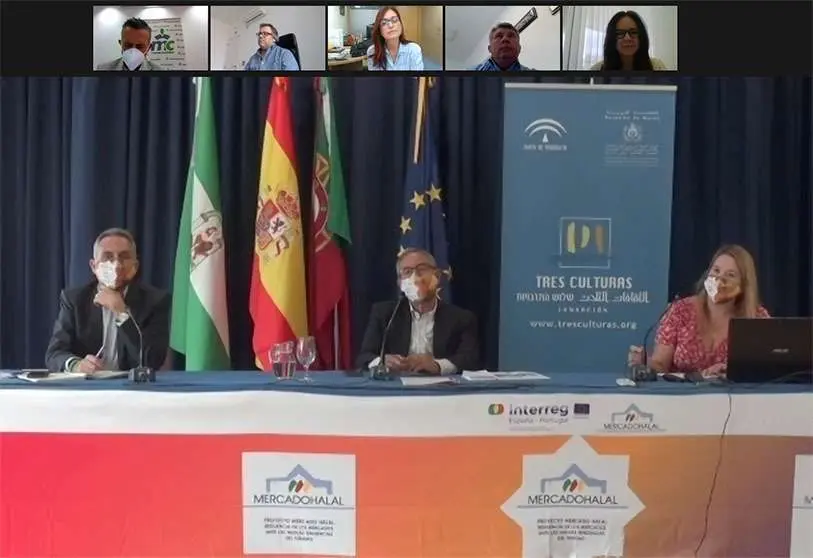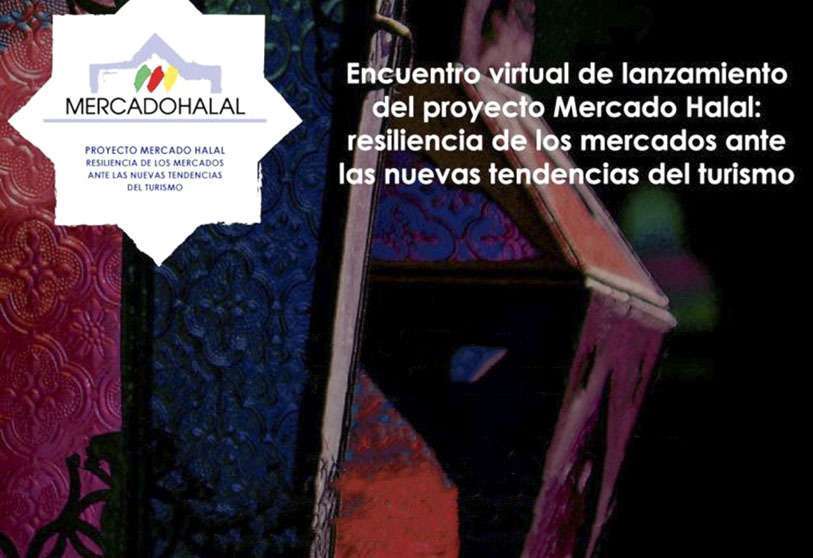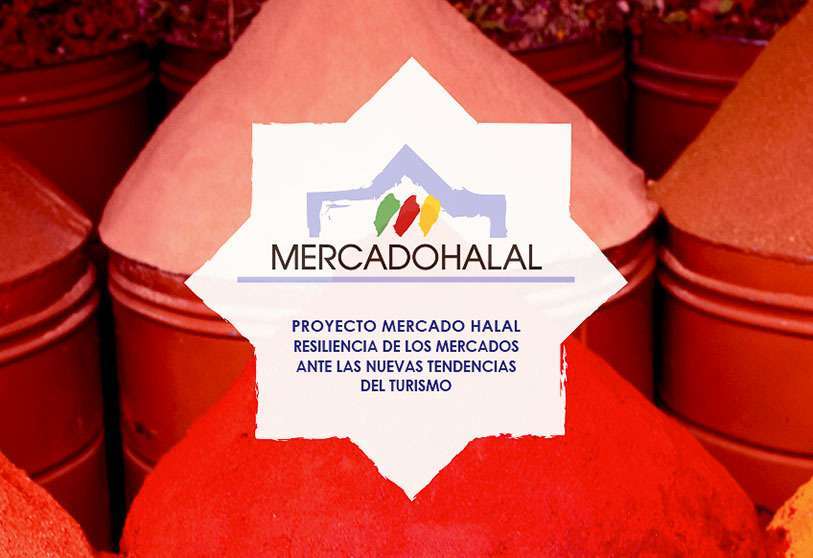Fundación Tres Culturas presents a European project to strengthen the halal industry in Spain and Portugal

Crises are opportunities. This is what the project 'Halal Market: market resilience to new trends in tourism', a project within the framework of the Interreg Spain and Portugal cooperation programme, wants to promote. This initiative was presented this morning by means of a virtual event by the Three Cultures Foundation and the main objective is cross-border cooperation between Andalusia and two regions of the Alentejo in Portugal to promote business competitiveness. To achieve this, the aim is to promote the competitiveness of small and medium-sized enterprises and to improve their exports by trying to open up a niche for them in the halal industry, which has had a very high growth potential in recent years.
"The economy is going through a very complicated period and our business fabric has suffered greatly in recent months, but when this project ends we will have provided services to the companies in our regions, bringing great added value," explained José Manuel Cervera, Director of the Fundación Tres Culturas, at the start of the press conference. On this occasion, Cervera also highlighted the importance of culture in promoting economic activity and creating new jobs. The project was presented on Wednesday at a virtual press conference attended by the heads of Tres Culturas, the authorities of the Alentejo and Mercacórdoba.
One of the main objectives of the project presented on Wednesday is to provide companies with competitive advantages to generate halal products and services. Although it is aimed at all types of sectors, those that can benefit most in the regions of southern Spain and Portugal are tourism and the hotel industry. The Fundación Tres Culturas is leading this initiative with the aim of facilitating intercultural relations between the participating actors and making them understand cultural differences.

At the time of COVID-19, digitalisation is essential. For this reason, another of the pillars of Mercado Halal is the development of an App and content for social networks. Another of the objectives is to reach a millennial audience and to do this it is essential to speak their language, which today is digital.
"We must offer support to companies to boost their competitiveness and analyse market trends. To do this, there is a promotion and marketing plan in place to develop the project. The funding of the promotion company is very important and has no cost", said Germinal Gil, senior technician of the Spanish-Moroccan entity and Secretary General of WOCMES, the annual meeting on the Middle East and North Africa, during the presentation after the press conference. "Next year, 2021, will be the time when the project will be at its full strength and we will begin to see the first results", she said.
Gil indicated that throughout this year there will be new meetings, which will have to be virtual if the pandemic continues, to analyse the progress and results of the projects. Andalusia and southern Portugal are two powers in the food sector. The export and production of halal products represent a whole reef for the exports of this region. But this type of product is not only limited to food, tourism is another sector that can benefit from adapting to the demands of Muslim consumers. For this reason, the presentation was attended by Beatriz Arilla, director of the Seville Tourism Consortium and María de Lurdes Vale, coordinator of the Tourism team of the Portuguese Embassy in Italy.

"Tourism adapted to the Muslim consumer is a growing segment of business expansion. Adapting to the requirements of this way of doing tourism is a challenge, but this is the time to try and take advantage of the new opportunities offered by the market," said Javier Albarracín, from the Halal Services organisation in Barcelona, during the virtual presentation following the press conference on the project. "The Muslim consumer is becoming an increasingly important market and is a great opportunity for companies in Spain and Portugal. Indonesia and Malaysia are two of the major markets for Spanish and Portuguese exports", he explained.
The Middle East and North Africa region, where a new middle class is consolidating, is the main target of the hala products and services. "We have a priority interest in this area of the world to diversify our exports and earn new income. These are difficult markets for our companies, but their potential is enormous", explained María Lara, from the Andalusian agency Extenda, dedicated to the internationalisation of Andalusian companies. "Collaboration between companies on both shores is key to boosting competitiveness. This is why we have had an office in Morocco for more than 10 years and another in the Emirates. We will continue to support the halal market and cross-border cooperation with Portugal, as proposed in the project", said Lara.

Although one of the objectives is the internationalisation of companies, the participation of local entities is fundamental. MercaCórdoba is one of the organisations that has joined the project as a centre for food distribution in Andalusia. "As a public company we have a social responsibility and that is why we work in different areas, which is why we have taken an interest in this project and joined it," explained Gonzalo Pérez Alcalá, the company's manager.
The halal industry is consolidating more and more in Spain every year and during these times of uncertainty and pandemic any business opportunity is necessary to continue achieving economic growth. "When we started out, nobody knew what halal products were in Spain, but little by little we are seeing that every day it is a market that is consolidating and initiatives like this are very necessary to publicise an industry that can benefit Spain", explained Isabel Romero during her participation in the meeting, from the Halal Institute of Cordoba, an organisation that promotes the development of the industry and is one of the key agents in the development of the project.








